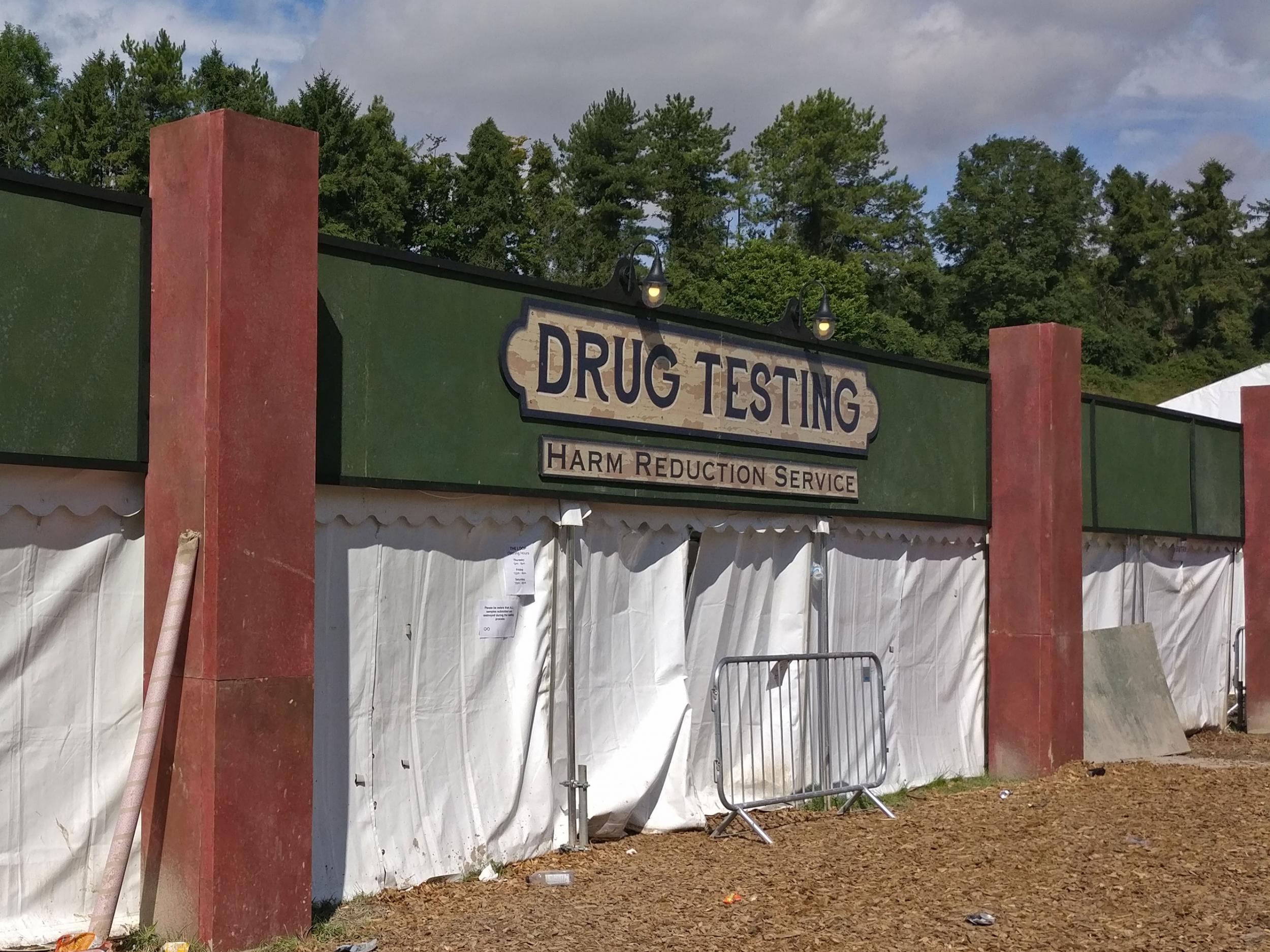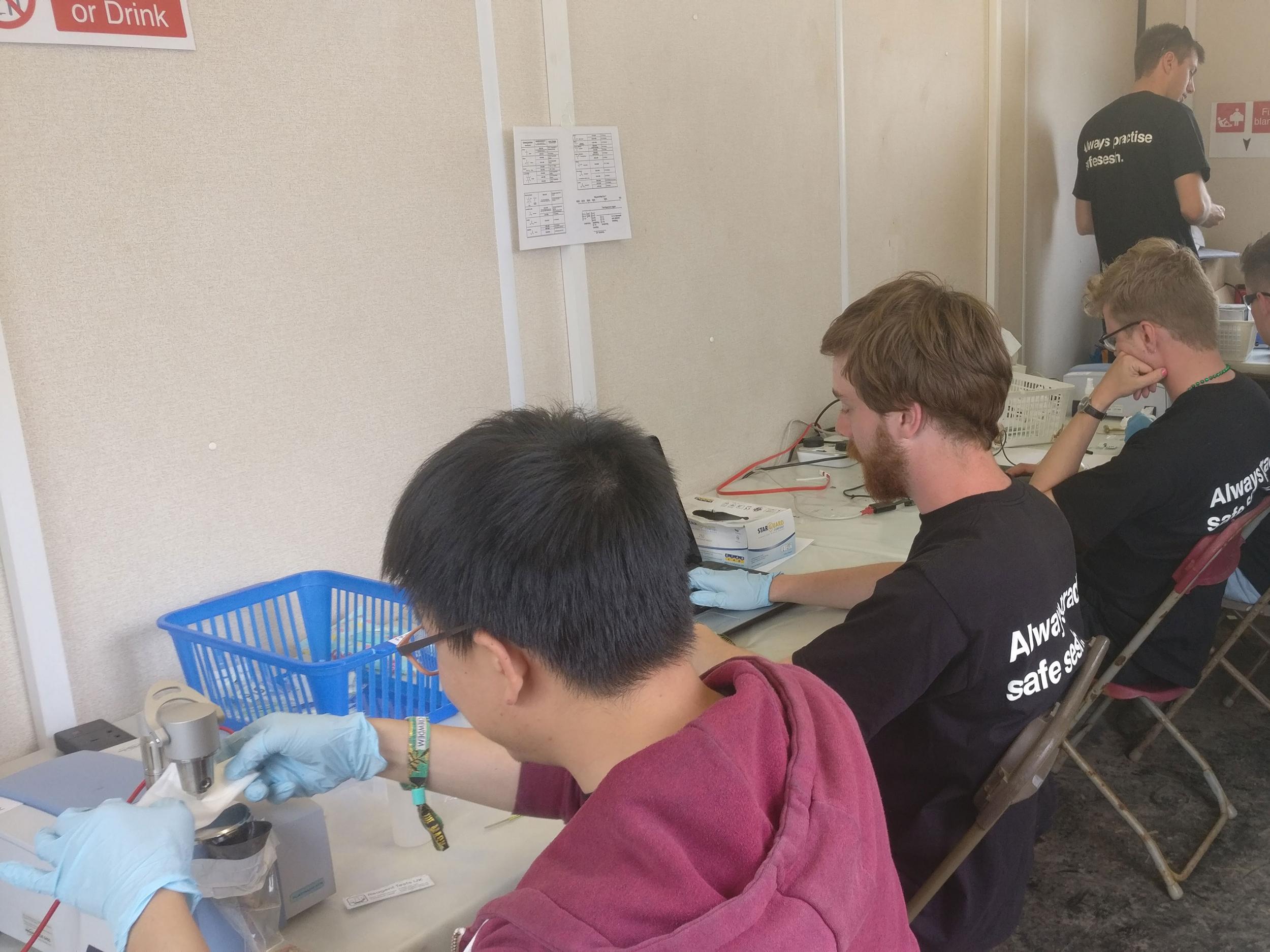Inside The Loop: The festival drug testing service trying to keep British revellers safe
Analysts found plaster of paris, monosodium glutamate, creatine, lactose, sugar and anti-malarial pills sold as drugs

Your support helps us to tell the story
From reproductive rights to climate change to Big Tech, The Independent is on the ground when the story is developing. Whether it's investigating the financials of Elon Musk's pro-Trump PAC or producing our latest documentary, 'The A Word', which shines a light on the American women fighting for reproductive rights, we know how important it is to parse out the facts from the messaging.
At such a critical moment in US history, we need reporters on the ground. Your donation allows us to keep sending journalists to speak to both sides of the story.
The Independent is trusted by Americans across the entire political spectrum. And unlike many other quality news outlets, we choose not to lock Americans out of our reporting and analysis with paywalls. We believe quality journalism should be available to everyone, paid for by those who can afford it.
Your support makes all the difference.The festival season is well underway, which means thousands of young people are gathering in fields to party – and many will use drugs.
Despite zero-tolerance policies on the entrances of British festivals, illegal substances inevitably make their way into the events.
In recognition of this, some have allowed harm reduction charity The Loop – a drug testing and counselling service – on site, in a bid to reduce ill health resulting from drug use.
One festival to accommodate the service was Boomtown, a theatrical and music festival in Hampshire.
Revellers were able to anonymously visit the tent, drop off a sample of their drugs for analysis, and return in a few hours to find out what it is in a short talk with a professional drugs counsellor.
Gabriel and Dennis*, both aged 26, allowed The Independent to accompany them as they found out what was in their drugs.
Before they were given their results, they were asked a series of questions about their previous drug use and what they were planning to use at the festival.
Dennis’s bag of white powder was confirmed to be cocaine, and Gabriel’s – which he found on the floor – was ketamine. The drugs are also graded in terms of strength, so users know how potent it is.
The counsellor asked the men what the risks are, and pointed out any they missed. The “brief intervention” talk is non-judgemental, and takes the tone of a conversation, rather than a scolding.
“Are you informed of the risks of the drugs you have?” the counsellor asked the young men, adding: “Look out for one another, remove yourself from a situation if it gets too hectic.”
Dennis said afterwards: “It’s so nice to be spoken to about drugs like you’re not an idiot,”
The service is “potentially lifesaving”, according to site coordinator Dr Henry Fisher, policy director at drugs reform think tank Volteface.
His team of experienced chemists worked in an on-site laboratory, where drug samples are tested using a variety of advanced methods.
“The primary test we use is infrared spectroscopy, which shines a beam of infrared light at the sample,” Dr Fisher told The Independent.
“Some of that light gets absorbed, other wavelengths of that light get reflected. And depending on what gets reflected, it creates a unique fingerprint for that sample.”
This fingerprint is then compared to a database of drugs, common cutting agents and other substances. Further tests can be run to assess potency and to determine unknown substances.
While about 90 per cent of drugs were real, the tests at Boomtown also revealed a number of less psychoactive substances: plaster of paris, monosodium glutamate, creatine, lactose, sugar and anti-malarial pills.

“It clearly shows people just don’t know what is in their drugs,” Dr Fisher said.
But the main concern for the team was discovering samples of n-ethylpentylone, sold as Ecstasy.
“It’s quite an unpleasant stimulant, it doesn’t feel much like MDMA,” Dr Fisher explained. “So what that means is people are likely to take some, not feel much, take a bit more, then take a bit more.”
People taking the drug can end up not sleeping for 36 hours, and suffer a number of nasty side effects, including anxiety and paranoia.
“The danger is it’s a lot more potent than MDMA, which means people could be taking well above what they think they should be taking,” he added.
Finding risky substances being mis-sold as other drugs means that not only does the potential user avoid a bad trip – or much worse – but the message can also be spread to other festivalgoers and emergency services.
Equally important is advising users of the strength of legitimate drugs.
Dr Fisher explained: “One of the main dangers with MDMA at the moment is that there’s a lot of very strong pills, some in excess of 250mg.
“People aren’t used to dosing that, especially if they’re not used to taking pills – they just automatically think they should take a whole one.”
While a fully grown man might suffer few ill effects from half a pill that strong, a user with a smaller body – such as a teenage girl – could potentially overdose.
The Independent spoke with a group of younger girls who were given this very warning by the service, and decided to take much less of their strong ecstasy pills than they originally planned.
And speaking to various revellers around the festival, there were nothing but positive comments towards The Loop’s service.
Boomtown has seen a number of drug deaths in the past, but there were none this year. Indeed, welfare and medical professionals on site reportedly saw far fewer serious drugs-related health issues than previous years, and attributed this to the presence of The Loop.
While some events remain hesitant to host the service – Leeds Festival was forced to cancel it after disagreements with the local council – drug reform campaigners hope it will become a regular part of nightlife.
“Given the service has now established its effectiveness, I think we’re going to get to a point where it’s actually negligent to not have it,” said Steve Rolles, senior policy analyst at think tank Transform.
He continued: “I think it should really be a condition of licence for certain types of event. A lot of music festivals have many people taking drugs.
“We may not like that fact, but nonetheless, it’s the reality. For the people who are taking drugs, we’ve got a duty to try to keep them as safe as possible.”
*Names changed
Join our commenting forum
Join thought-provoking conversations, follow other Independent readers and see their replies
Comments